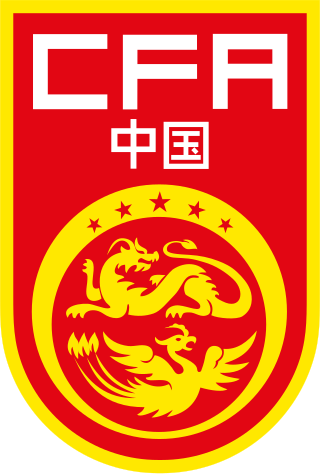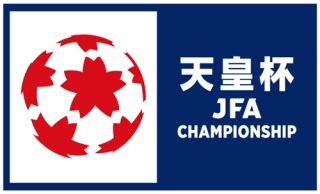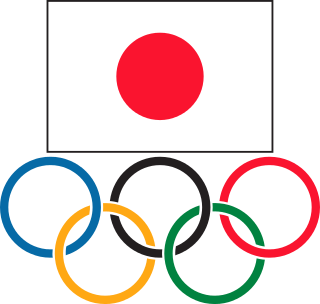Schedule
- Key
- H = Home match
- A = Away match
- N = Neutral venue
This page records the details of the Japan national football team in 2007. [1]
| Player | -2006 | 03.24 | 06.01 | 06.05 | 07.09 | 07.13 | 07.16 | 07.21 | 07.25 | 07.28 | 08.22 | 09.07 | 09.11 | 10.17 | 2007 | Total |
| Yoshikatsu Kawaguchi | 98(0) | O | - | O | O | O | O | O | O | O | O | O | O | O | 12(0) | 110(0) |
| Junichi Inamoto | 65(4) | - | - | O | - | - | - | - | - | - | - | O | O | - | 3(0) | 68(4) |
| Shunsuke Nakamura | 63(16) | O | - | O | O | O(1) | O(1) | O | O | O | - | O | O(2) | - | 10(4) | 73(20) |
| Koji Nakata | 56(2) | - | - | O | - | - | - | - | - | - | - | - | - | - | 1(0) | 57(2) |
| Yuji Nakazawa | 53(9) | O | O(1) | O | O | O | O | O | O(1) | O | O | O | O | O | 13(2) | 66(11) |
| Seigo Narazaki | 50(0) | - | O | - | - | - | - | - | - | - | - | - | - | - | 1(0) | 51(0) |
| Akira Kaji | 49(1) | O | - | - | O | O | O | O | O | O | O | O | O | O(1) | 11(1) | 60(2) |
| Naohiro Takahara | 44(17) | O(1) | O(1) | O | O(1) | O(2) | O | O(1) | O | O | - | - | - | - | 9(6) | 53(23) |
| Yasuhito Endo | 44(3) | O | O | O | O | O | O(1) | O | O | O | O | O | O | O | 13(1) | 57(4) |
| Keisuke Tsuboi | 39(0) | - | O | - | - | - | - | - | - | - | - | - | - | - | 1(0) | 40(0) |
| Yoshito Okubo | 19(0) | - | - | - | - | - | - | - | - | - | O | - | - | O(2) | 2(2) | 21(2) |
| Seiichiro Maki | 17(3) | O(1) | O | O | - | O | O(2) | O | O | - | - | O | O(1) | - | 9(4) | 26(7) |
| Yuichi Komano | 15(0) | O | O | O | - | O | O | O | O | O | O | O | O | O | 12(0) | 27(0) |
| Yuki Abe | 13(1) | O | O | O | O | O | O | O | O(1) | O | O | - | - | O | 11(1) | 24(2) |
| Hisato Sato | 12(3) | - | O | - | - | - | O | O | O | O | O | - | O | - | 7(0) | 19(3) |
| Keita Suzuki | 7(0) | O | O | O | O | O | O | O | O | O | O | O | O | O | 13(0) | 20(0) |
| Tatsuya Tanaka | 6(1) | - | - | - | - | - | - | - | - | - | O | O | - | - | 2(0) | 8(1) |
| Yasuyuki Konno | 6(0) | - | O | O | O | O | - | O | - | - | O | O | - | O | 8(0) | 14(0) |
| Marcus Tulio Tanaka | 5(1) | O | - | - | - | - | - | - | - | - | O(1) | O | O | - | 4(1) | 9(2) |
| Naotake Hanyu | 5(0) | O | - | O | O | O | O | - | O | O | - | - | - | - | 7(0) | 12(0) |
| Daisuke Matsui | 4(1) | - | - | - | - | - | - | - | - | - | - | O | O | - | 2(0) | 6(1) |
| Kengo Nakamura | 3(1) | O | O | O | O | O | O | O | O | O | O | O | O | O | 13(0) | 16(1) |
| Satoru Yamagishi | 3(0) | - | O | - | O | - | - | - | - | O | - | - | O | O | 5(0) | 8(0) |
| Ryuji Bando | 2(2) | - | - | O | - | - | - | - | - | - | - | - | - | - | 1(0) | 3(2) |
| Koji Yamase | 1(0) | - | - | - | - | - | - | - | - | - | O(1) | - | - | - | 1(1) | 2(1) |
| Daiki Takamatsu | 1(0) | - | - | - | - | - | - | - | - | - | O | - | - | - | 1(0) | 2(0) |
| Kisho Yano | 0(0) | O | O | - | - | - | - | O | O | O | - | O | O(1) | - | 7(1) | 7(1) |
| Jungo Fujimoto | 0(0) | O | O | O | - | - | - | - | - | - | - | - | - | O | 4(0) | 4(0) |
| Koki Mizuno | 0(0) | O | O | - | - | O | O | - | - | - | - | - | - | - | 4(0) | 4(0) |
| Hideo Hashimoto | 0(0) | - | O | - | O | - | - | - | - | - | O | - | - | O | 4(0) | 4(0) |
| Ryoichi Maeda | 0(0) | - | - | - | - | - | - | - | - | - | O | - | - | O(1) | 2(1) | 2(1) |
| Akihiro Ienaga | 0(0) | O | - | - | - | - | - | - | - | - | - | - | - | - | 1(0) | 1(0) |
| Rank | Name | Position | Goals |
|---|---|---|---|
| 1 | Naohiro Takahara | FW | 6 |
| 2 | Seiichiro Maki | FW | 4 |
| Shunsuke Nakamura | MF | ||
| 4 | Yoshito Okubo | FW | 2 |
| Yuji Nakazawa | DF | ||
| 6 | Yasuhito Endo | MF | 1 |
| Yuki Abe | MF | ||
| Marcus Tulio Tanaka | DF | ||
| Koji Yamase | MF | ||
| Kisho Yano | FW | ||
| Ryoichi Maeda | FW | ||
| Akira Kaji | DF |
Japan 1st Kit | Japan 1st Alt | Japan 2nd Kit |

Sports in Japan are a significant part of Japanese culture. Both traditional sports such as sumo and martial arts, and Western imports like baseball, association football, basketball and tennis are popular with both participants and spectators.

Birgit Prinz is a German former footballer, two-time FIFA Women's World Cup champion and three-time FIFA World Player of the Year. In addition to the German national team, Prinz played for 1. FFC Frankfurt in the Frauen-Bundesliga as well as the Carolina Courage in the Women's United Soccer Association (WUSA), the first professional women's league in the United States. Prinz remains one of the game's most prolific strikers and is the second FIFA Women's World Cup all-time leading scorer with 14 goals. In 2011, she announced the end of her active career. She currently works as a sport psychologist for the men's and women's teams of Bundesliga club TSG 1899 Hoffenheim.

The China national football team represents the People's Republic of China in international association football and is governed by the Chinese Football Association.

The Japan national football team, also known by the nickname Samurai Blue, represents Japan in men's international football. It is controlled by the Japan Football Association (JFA), the governing body for football in Japan.

The South Korea national football team represents South Korea in men's international football and is governed by the Korea Football Association. South Korea has emerged as a major football power in Asia since the 1980s, having participated in ten consecutive and eleven overall FIFA World Cup tournaments, the most for any Asian country. Despite initially going through five World Cup tournaments without winning a match, South Korea became the first Asian team to reach the semi-finals when they co-hosted the 2002 tournament with Japan. South Korea also won two AFC Asian Cup titles, and finished as runners-up on four occasions. Furthermore, the team won three gold medals and three silver medals at the senior Asian Games.

The Jordan national football team represents Jordan in international football and is controlled by the Jordan Football Association. Jordan have never qualified for the World Cup finals but have appeared five times in the Asian Cup and reached the final match of a major tournament for the first time in the 2023 edition, finishing as runners-up for the first time.
The Philippines national football team represents the Philippines in international football, governed by the Philippine Football Federation (PFF) and has been playing internationally since 1913.

The Emperor's Cup JFA All-Japan Football Championship Tournament, commonly known as The Emperor's Cup or Japan FA Cup, and rebranded as The JFA Emperor's Cup from 2024 onwards, is a Japanese annual football competition. It has the longest tradition of any football match in Japan, dating back to 1921, before the formation of the J.League, current JFL and their predecessor, Japan Soccer League.

The Sweden women's national football team, nicknamed Blågult, represents Sweden at international women's association football competitions. It was established in 1973 and is governed by the Swedish Football Association.
The Japan women's national football team, commonly known as Nadeshiko Japan (なでしこジャパン), represents Japan in women's association football and is run by the Japan Football Association (JFA). The only country to win every FIFA competition and the most successful women's national team in the Asian Football Confederation, its highest ranking in the FIFA Women's World Rankings is 3rd, achieved in December 2011.

Yasuhito Endō is a Japanese former footballer who played as a midfielder.

The Democratic People's Republic of Korea women's national football team represents North Korea in international women's football.

Shinobu Ohno is a Japanese footballer who plays as a forward for Nojima Stella Kanagawa Sagamihara. She formerly played for the Japan national team.
This page records the details of the matches played by the Japan national football team during 2008. In 2008 the Japan national football team competed in the third and fourth round of the AFC 2010 FIFA World Cup qualifications, the 2008 East Asian Cup Final, and the 2008 Kirin Cup, amongst other friendly matches.
This page records the details of the Japan national football team in 2004.
This page records the details of the Japan national football team in 2005.
This page records the details of the matches played by the Japan national football team during 2009. In 2009 the Japan national football team competed in the fourth round of the AFC 2010 FIFA World Cup qualifications, the 2011 AFC Asian Cup qualification, and the 2009 Kirin Cup, amongst other friendly matches.

The Japan national under-23 football team is a national association football youth team of Japan and is controlled by the Japan Football Association. The team won the gold medal at the 2010 Asian Games and were champions in the 2016 AFC U-23 Championship. Since 1992, it was decided that teams targeting athletes under the age of 23 will participate in the Olympics. Therefore, the name changes to Japan national under-22 football team the year before the Olympics and Japan national under-21 football team two years prior. The exception to this was the 2020 Tokyo Olympics, which was postponed one year, so in 2021, the team was called the Japan national under-24 football team.

Azusa Iwashimizu is a Japanese footballer who played as a defender for Tokyo Verdy Beleza in the WE League and the Japan national team.

Miho Fukumoto is a Japanese football player. She plays for Sanfrecce Hiroshima Regina in the WE League. As a player for the Japan national team, she was capped 81 times between 2002 and 2016.